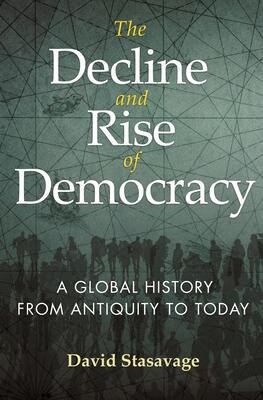
The Mystery of the Kibbutz: Egalitarian Principles in a Capitalist World
Ancora nessuna valutazione
Mystery
History
Formato
Kindle
Pagine
355
Lingua
Inglese
Pubblicato
Feb 13, 2018
Editore
Princeton University Press
Descrizione
In a world dominated by capitalist ideals, the kibbutz movement stands as a remarkable anomaly. This work explores the resilience of the kibbutz system, illustrating how communities built on egalitarian principles managed to thrive amidst economic contradictions. Readers are invited to delve into the historical context of kibbutzim, which emerged as a response to social inequalities and aimed for communal living and shared resources.
The author probes the intricate balance these communities maintained between their utopian ideals and the realities of a market-driven society. Through engaging narratives and insightful analysis, the book reveals the challenges faced by kibbutzim as they navigated changing socio-economic landscapes. It portrays the evolution of these communities, offering a nuanced understanding of their adaptability.
Moreover, the text delves into the philosophical underpinnings of the kibbutz ideology, questioning how such a radical social structure could survive, and even flourish, where traditional capitalist systems often falter. It encourages readers to reflect on the implications of mutual aid, cooperation, and shared responsibility in today’s world.
Ultimately, this examination serves not only as a historical account but also as a contemplation of the values that can be extracted from the kibbutz experience. It invites discussions on sustainability and the potential for different economic models to coexist in a broadly capitalist framework.
The author probes the intricate balance these communities maintained between their utopian ideals and the realities of a market-driven society. Through engaging narratives and insightful analysis, the book reveals the challenges faced by kibbutzim as they navigated changing socio-economic landscapes. It portrays the evolution of these communities, offering a nuanced understanding of their adaptability.
Moreover, the text delves into the philosophical underpinnings of the kibbutz ideology, questioning how such a radical social structure could survive, and even flourish, where traditional capitalist systems often falter. It encourages readers to reflect on the implications of mutual aid, cooperation, and shared responsibility in today’s world.
Ultimately, this examination serves not only as a historical account but also as a contemplation of the values that can be extracted from the kibbutz experience. It invites discussions on sustainability and the potential for different economic models to coexist in a broadly capitalist framework.
Recensioni
Nessuna recensione ancora
Sii il primo a recensire questo libro e condividi i tuoi pensieri
Aggiungi Prima RecensioneRegistro di Lettura
Nessun registro di lettura trovato
Inizia a tracciare i tuoi progressi di lettura per vedere i registri qui
Aggiungi il tuo primo registro di letturaNote
Registro delle transazioni
Nessun registro delle transazioni trovato
Inizia a tracciare le tue transazioni di libri per vedere i registri qui
Aggiungi il tuo primo registro di transazione


















